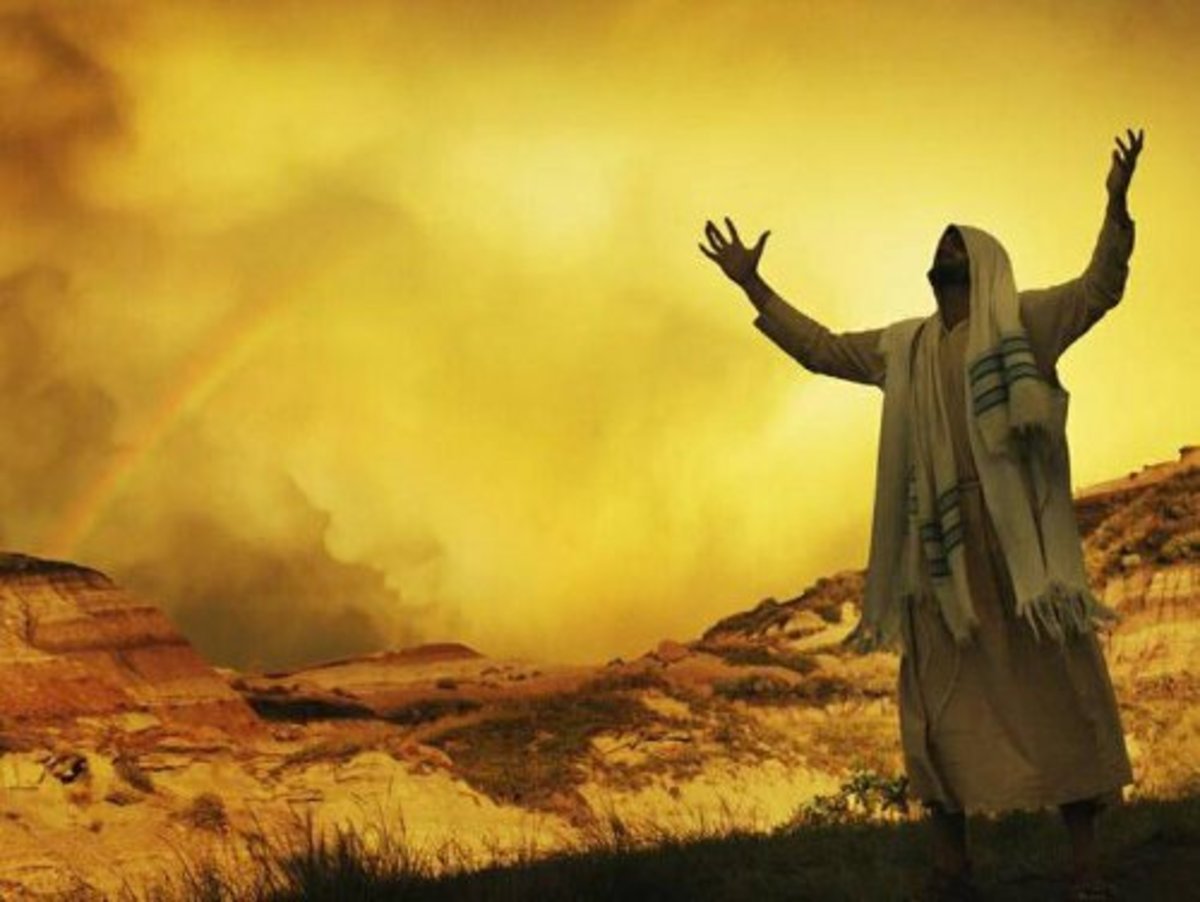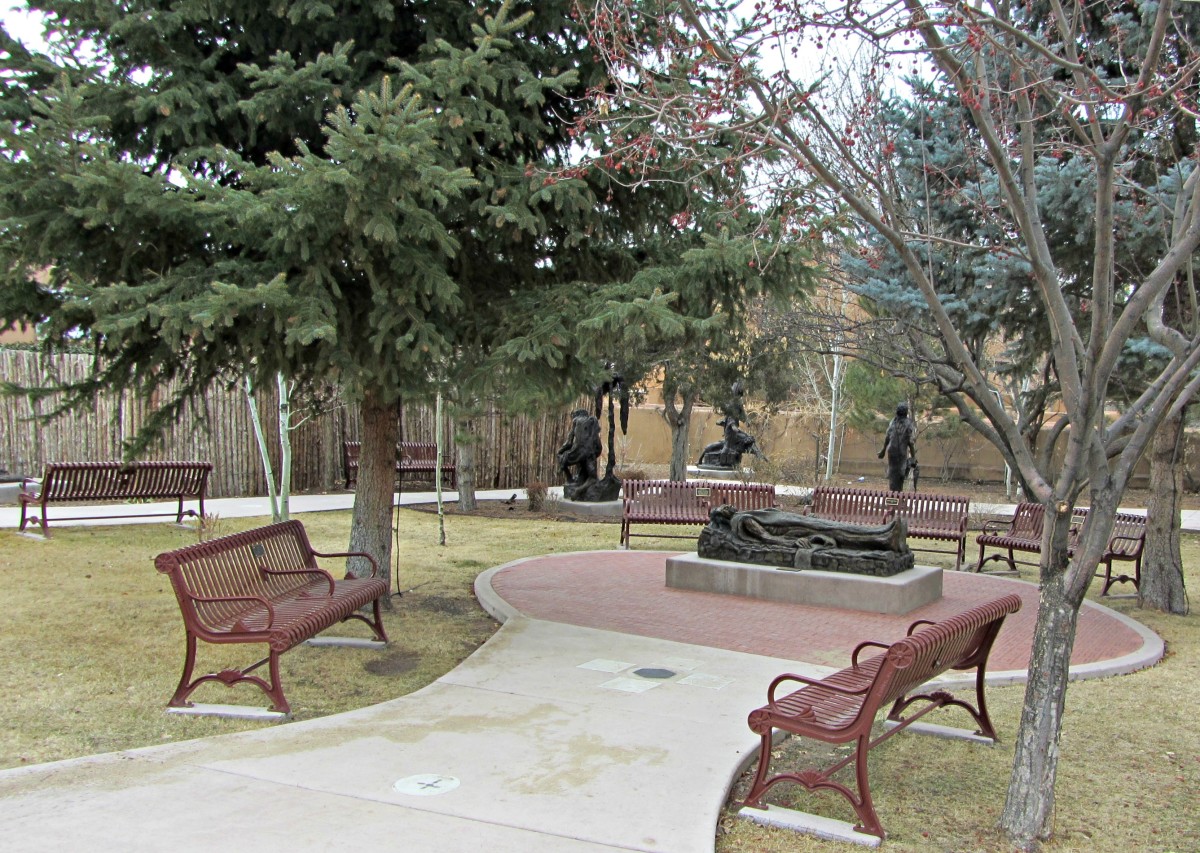Interviewing "Prayer" - How Do We Pray, Part 1

Review
We are coming to the close of this "Interview of Prayer." We have been searching the Bible, asking the kinds of questions reporters ask, to determine what the Bible says about prayer. We have tried to leave our preconceived ideas about prayer behind so as to see the truth about prayer, from the Bible's perspective. So far we have discussed Who, What, Where, When and Why. Let's look at some of the things we have learned in the past 6 lessons.
- What is Prayer?
- A Memorial for us to remember what God has done for us.
- Incense before God's throne
- What are the conditions for Prayer?
- We must Believe and not be double minded
- We have to be obedient to God's Commands
- We must have our relationships with others in order
- Why does prayer matter?
- 1st, it's a command
- God is present when we pray
- Keep us from temptation
- Where should we pray?
- Jesus would take time to be alone with God when praying
- Our attitude is more important than our location
- Time alone with God is needed
- When are we instructed to pray?
- When sin is involved, whether that is ours or others.
- When there is trouble
- When things are going well
- Who are we praying to?
- A God that is many things, Creator, Destroyer, Disciplinary, and Lover
- A God that loved us before we existed
- A God that created a place for us so we could know Him
This week, we start the final question, "How do we pray?"
Part2 can be found here
How Do We Pray
For this, we will turn to Matthew chapter 6 where Jesus gives us, what we have come to call the "Lord's Prayer".
Matthew 6:9-13 KJV After this manner therefore pray ye: Our Father which art in heaven, Hallowed be thy name. (10) Thy kingdom come. Thy will be done in earth, as it is in heaven. (11) Give us this day our daily bread. (12) And forgive us our debts, as we forgive our debtors. (13) And lead us not into temptation, but deliver us from evil: For thine is the kingdom, and the power, and the glory, for ever. Amen.
Matthew 6:9-13 NIV "This, then, is how you should pray: "'Our Father in heaven, hallowed be your name, (10) your kingdom come, your will be done on earth as it is in heaven. (11) Give us today our daily bread. (12) Forgive us our debts, as we also have forgiven our debtors. (13) And lead us not into temptation, but deliver us from the evil one.'
Now, who believes that we should be "praying" the Lord's Prayer as our prayer? I mean verse 9 says to pray "after this manner" or (in the NIV) "this is how you should pray." Well, the original Greek would be correctly translated to say "pray after this fashion", or "pray like this," but not in the literal sense. This is an example that Jesus gave on how to pray. It is a model upon which we build our prayers. A skeleton on which we hang the meat of our time with God. It is not a set of magic words that we recite but an examples to teach us the parts of a prayer. We're going to take some time to look at these parts over this week and next.
A Prayer in Two Parts
Before we dig into the verses of the Lord's Prayer specifically, I noticed something as I was reading that I found very interesting. I see the prayer is divided into two parts. The division is based on the who the focus is on. Let's read it together and you tell me who the focus is on in each verse.
(Matthew 6:9 NIV) This, then, is how you should pray: "'Our Father in heaven, hallowed be your name
(Matthew 6:10 NIV) your kingdom come, your will be done on earth as it is in heaven
(Matthew 6:11 NIV) Give us today our daily bread
(Matthew 6:12 NIV) And forgive us our debts, as we forgive our debtors.
(Matthew 6:13 NIV) And lead us not into temptation, but deliver us from evil
The prayer opens with the focus on God first, His name, and His will. Only after does it move to focus on us. Jesus gave us this prayer as a model on how we are to pray. His example shows us, as we have seen throughout this study, that God is the main focus of our prayer life. We need to understand as begin our prayers, that we first should lift up the one we are praying to, more than our own wants and desires.
"Our Father"
The prayer opens with a statement of who we are praying to. It could also be viewed as an admission of who God is. He is "our father in heaven." Not our father on earth, or the great spirit in the sky. The Bible full of illustrations about God as our Father.
Psalms 68:5 NIV A father to the fatherless, a defender of widows, is God in his holy dwelling.
Isaiah 63:16 NIV But you are our Father, though Abraham does not know us or Israel acknowledge us; you, O LORD, are our Father, our Redeemer from of old is your name.
Romans 8:15 NIV For you did not receive a spirit that makes you a slave again to fear, but you received the Spirit of sonship. And by him we cry, "Abba, Father."
"Hallowed be Thy Name"
Once we have acknowledged who it is we are praying to, the next line praises the name of God. One meaning of the original Greek is to venerate or praise. Once we acknowledge who God is, we then should praise Him for who He is. Have you ever looked at the number of ways God is named in the Bible. Here are just some of the many names of God.
- Jehovah: I AM, the Covenant name of God (Exodus 3:14 NIV God said to Moses, "I AM WHO I AM. This is what you are to say to the Israelites: 'I AM has sent me to you.'")
- Jehovah-Jireh: The Lord will Provide (Genesis 22:14 NIV So Abraham called that place The LORD Will Provide. And to this day it is said, "On the mountain of the LORD it will be provided.")
- Jehovah-Rophe: The Lord who heals (Exodus 15:22-26 NIV Then Moses led Israel from the Red Sea and they went into the Desert of Shur. For three days they traveled in the desert without finding water. (23) When they came to Marah, they could not drink its water because it was bitter. (That is why the place is called Marah.) (24) So the people grumbled against Moses, saying, "What are we to drink?" (25) Then Moses cried out to the LORD, and the LORD showed him a piece of wood. He threw it into the water, and the water became sweet. There the LORD made a decree and a law for them, and there he tested them. (26) He said, "If you listen carefully to the voice of the LORD your God and do what is right in his eyes, if you pay attention to his commands and keep all his decrees, I will not bring on you any of the diseases I brought on the Egyptians, for I am the LORD, who heals you.", Jeremiah 30:17 NIV But I will restore you to health and heal your wounds,' declares the LORD, 'because you are called an outcast, Zion for whom no one cares.', Jeremiah 3:22 NIV "Return, faithless people; I will cure you of backsliding." "Yes, we will come to you, for you are the LORD our God.)
- Jehovah-Nissi: The Lord our Banner (Exodus 17:15-16 NIV Moses built an altar and called it The LORD is my Banner. (16) He said, "For hands were lifted up to the throne of the LORD. The LORD will be at war against the Amalekites from generation to generation.")
- Jehovah-M'Kaddesh: The Lord who Sanctifies (Leviticus 20:8 NIV Keep my decrees and follow them. I am the LORD, who makes you holy.)
- Jehovah-Shalom: The Lord our Peace (Judges 6:24 NIV So Gideon built an altar to the LORD there and called it The LORD is Peace. To this day it stands in Ophrah of the Abiezrites.)
- Jehovah Elohim: LORD God (Genesis 2:4 NIV This is the account of the heavens and the earth when they were created. When the LORD God made the earth and the heavens)
- Jehovah-Tsidkunu: The Lord our Righteousness (Jeremiah 23:5-6 NIV "The days are coming," declares the LORD, "when I will raise up to David a righteous Branch, a King who will reign wisely and do what is just and right in the land. (6) In his days Judah will be saved and Israel will live in safety. This is the name by which he will be called: The LORD Our Righteousness.)
- Jehovah-Rohi: The Lord our Shepherd (Psalms 23:1 NIV A psalm of David. The LORD is my shepherd, I shall not be in want.)
- Jehovah-Shammah: The Lord is there (Ezekiel 48:35 NIV "The distance all around will be 18,000 cubits. "And the name of the city from that time on will be: THE LORD IS THERE.")
- Jehovah-Sabaoth: The Lord of Hosts (Isaiah 1:24 KJV Therefore saith the Lord, the LORD of hosts, the mighty One of Israel, Ah, I will ease me of mine adversaries, and avenge me of mine enemies:)
- El Shaddai: God All Mighty or God All Sufficient (Genesis 17:1 NIV When Abram was ninety-nine years old, the LORD appeared to him and said, "I am God Almighty ; walk before me and be blameless.)
"Thy kingdom come, Thy will be done..."
So now we've started by naming who we are praying to, then praising the one we are praying. Now we have to acknowledge Him. And we do so by submitting to His will. How often have we had that privileged to submit willingly to God, and yet refused? Has God ever had to bring you to the point where you were willing to submit? Through discipline? Trials? Difficulties? The words of this Proverb come to mind when I think about this.
Proverbs 30:7-9 NIV "Two things I ask of you, O LORD; do not refuse me before I die: (8) Keep falsehood and lies far from me; give me neither poverty nor riches, but give me only my daily bread. (9) Otherwise, I may have too much and disown you and say, 'Who is the LORD?' Or I may become poor and steal, and so dishonor the name of my God.
Submission is essential to our daily walk. We must daily say, "Lord, thy will be done." Failing to do so and "self" will rise back up and try to take control again.
James 4:7 NIV Submit yourselves, then, to God. Resist the devil, and he will flee from you.
Notice how this starts with submitting before you resist? Guess what happens if you resist on your own? You loose! Satan has been doing this a lot longer than you have and he is real good at this type of warfare. We can only resist as we submit to God.
Romans 12:1-2 NIV Therefore, I urge you, brothers, in view of God's mercy, to offer your bodies as living sacrifices, holy and pleasing to God--this is your spiritual act of worship. (2) Do not conform any longer to the pattern of this world, but be transformed by the renewing of your mind. Then you will be able to test and approve what God's will is--his good, pleasing and perfect will.
If you were to ask me what verse I would like to set as my key verse to build my life on, this would be it. If my body is a sacrifice then it is no longer mine, and if it is a living sacrifice, then the life it contains is also no longer mine, but oh how hard that is. It's like chocolate ice cream to one on a diet. Or like the cookie jar you told your child not to get into. And now that same child can't think about anything else but the cookie jar. Our flesh is very much alive, true? Anyone whose flesh is not alive today? Then you have a struggle on your hands because your flesh does not want to be a sacrifice! You need to do as Abraham did and raise the knife above your own flesh-and-blood. Be willing to let it die, so that it can live in Christ's freedom.
My last example is from Jesus himself. We all know He knew His fate when He came to the Earth, but that does not mean He did not have a struggle with it, in the flesh He wore.
Matthew 26:39 NIV Going a little farther, he fell with his face to the ground and prayed, "My Father, if it is possible, may this cup be taken from me. Yet not as I will, but as you will."
Even Jesus had to surrender the flesh of the man He wore to be fully obedient to the Father. Jesus knows how hard it is to deny the flesh, how much pain it can cause (and I dare say our denials will never be as painful as His was). Because He knows, He can walk with us through it.
Summary
We have only started looking at the How of How do we pray, but I think you will agree it starts with understanding Who we are praying to, praising Him for Who He is, and submitting our lives to Him fully once we acknowledge Him for Who He is.
Continued in Part 2








